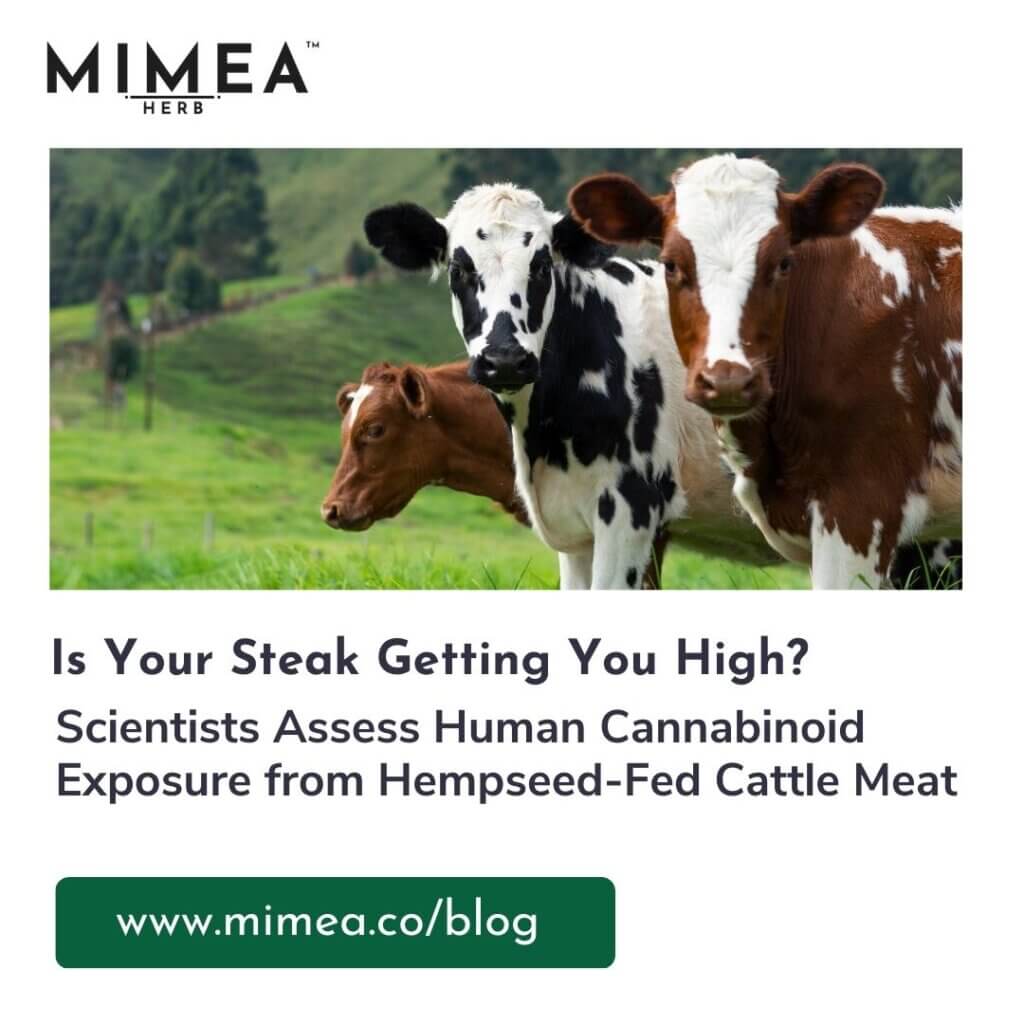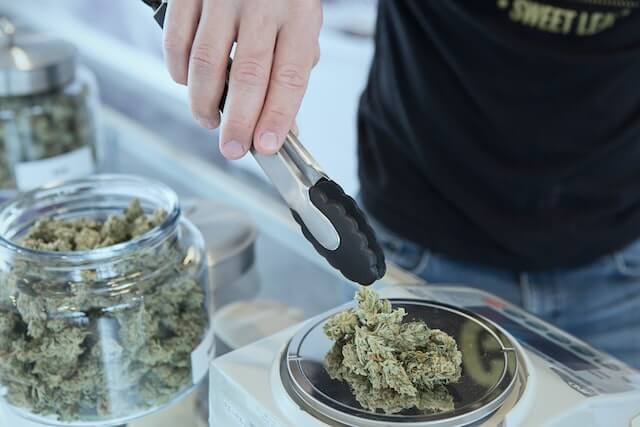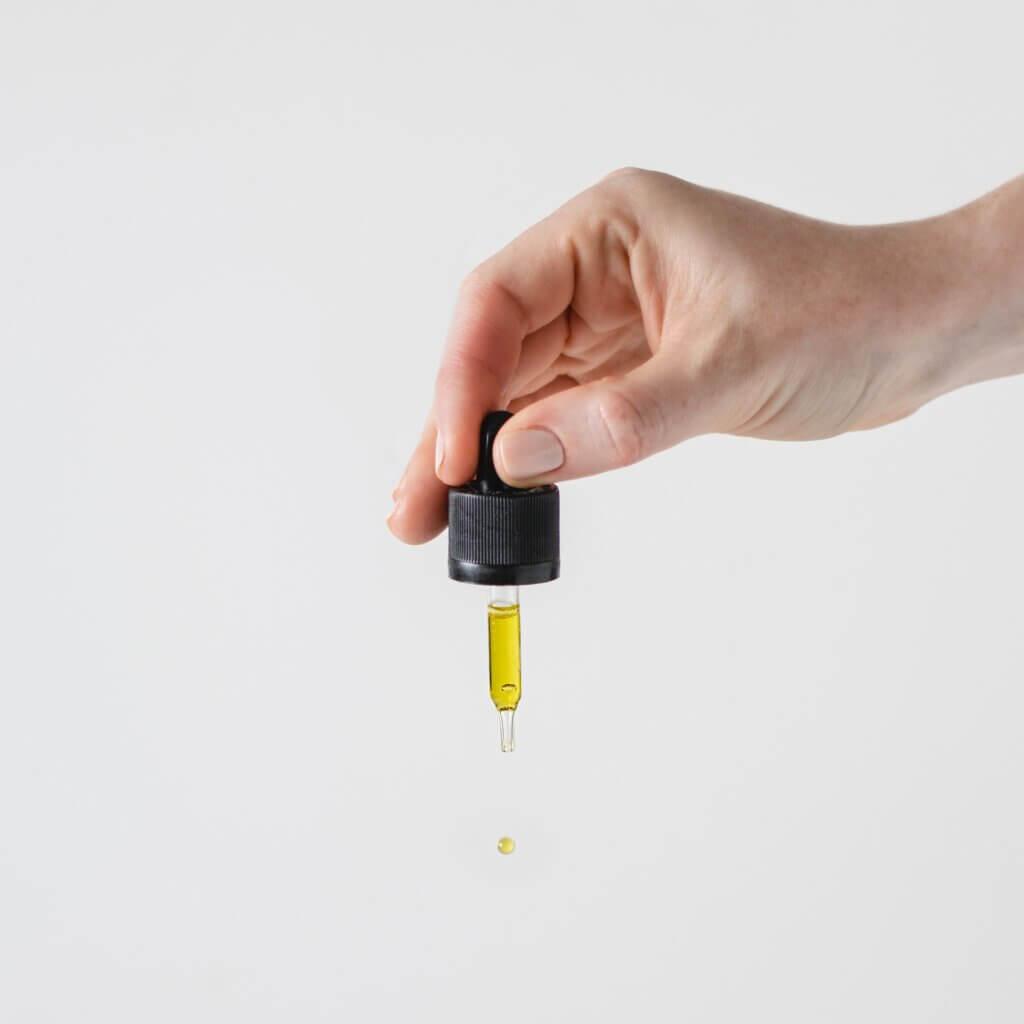Is Your Steak Getting You High? Scientists Assess Human Cannabinoid Exposure from Hempseed-Fed Cattle Meat

The USDA’s Agricultural Research Service (ARS) and North Dakota State University (NDSU) conducted a study to determine if it’s safe for cattle to be fed with hempseed cake, a byproduct of industrial hemp production. The researchers found that when cattle are fed with this byproduct, very low levels of Cannabis chemicals called cannabinoids are retained in their tissues, including muscle, liver, kidney, and fat tissues.
What are cannabinoids?
Cannabis plants (hemp; Cannabis sativa L.) contain over 80 naturally occurring compounds called cannabinoids. The best-known cannabinoids are Cannabidiol (CBD) and Tetrahydrocannabinol (THC), which are biologically active. While THC is used for recreational and medicinal purposes, CBD is used for medicinal purposes.
What is industrial hemp?
Industrial hemp is a variety of the Cannabis plant that is used for fiber and oil seed production. In 2018, the U.S. Congress authorized the legal production of industrial hemp, with the stipulation that it would contain less than 0.3% THC on a dry-matter basis.
What is hempseed cake?
Hempseed cake is a byproduct formed during oil extraction from industrial hemp seed. It is highly nutritious and contains low concentrations of CBD and THC.
Mooo-sic to our Ears: Low Levels of Cannabis Chemicals in Meat from Cattle Fed with Hempseed Cake
The study conducted by USDA-ARS and NDSU found that the concentrations of these chemical compounds in meat products from cattle fed with hempseed cake contributed only a small fraction of the total amount considered safe for consumers by regulatory organizations. The hempseed cake used in the study contained an average concentration of 1.3 ± 0.8 mg/kg of CBD and THC combined, which is 1/3000 of the legal threshold of 0.3% (3000 mg/kg) THC.
Can humans safely consume meat from cattle fed with hempseed cake?
According to the study’s lead researcher, David Smith, it would be difficult for a human to consume enough fat from cattle fed with hempseed cake to exceed regulatory guidelines for dietary THC exposure. Therefore, hempseed cake having low cannabinoid content can be a suitable source of crude protein and fiber in cattle feed, while offering industrial hemp producers a potential market for this byproduct of hempseed oil extraction.
While the study provides promising results, the final determination and approval for the legal use of hemp products in animal feeds remain with the U.S. Food and Drug Administration.
What are the implications of the study’s results for industrial hemp producers?
The study’s results suggest that hempseed cake, a byproduct of industrial hempseed oil extraction, can be a potential source of crude protein and fiber in cattle feed. This means that industrial hemp producers may have a new market for this byproduct, which could help them reduce waste and increase revenue. However, it’s important to note that the final determination and approval for the legal use of hemp products in animal feeds still rests with the U.S. Food and Drug Administration.
Could cattle fed with hempseed cake be a new market opportunity for industrial hemp producers?
The study’s results suggest that hempseed cake, a byproduct of hempseed oil extraction, can be used as a suitable source of crude protein and fiber in cattle feed. This means that industrial hemp producers may have a potential market for this byproduct, which could potentially help alleviate the oversupply of hemp on the market. However, it’s important to note that the final determination and approval for the legal use of hemp products in animal feeds remain with the U.S. Food and Drug Administration. So, while the study’s results are promising, it’s still unclear whether this will translate into a new market opportunity for farmers.
Check out the latest strains on our blog at www.mimea.co/blog
Become a High Achiever, download our mobile app at www.mimea.co/app
Education powered by www.cbd.how
Study: https://www.tandfonline.com/doi/abs/10.1080/19440049.2023.2187645?journalCode=tfac20
Original Article: https://phys.org/news/2023-04-scientists-potential-human-cannabinoid-exposure.html






Responses